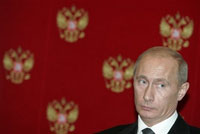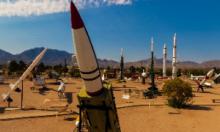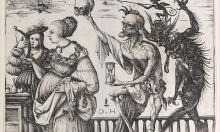Putin, The Czar
President Putin is going to make a national address to Russian citizens this week, four days before parliamentary elections on December 2. Putin will deliver his message to the nation as the leader of the United Russia party. It will be his last opportunity to exert influence on the results of the forthcoming elections. Looking back at the closing election campaign in Russia, one may say that Putin decided to fully support the party, which became quite a surprise for many observers.

Putin’s address to the nation was filmed prior to his meeting with Italian Prime Minister Romano Prodi. It is not known what the president is going to tell his people. However, the speech will obviously reflect his previous appearances as the party leader. Putin is pursuing several goals at this point: to convince the voters to come to the polls and urge them to vote for United Russia.
It is not ruled out that Putin will speak about Russia’s successes achieved during the recent eight years. The president may also name the “enemies” of Russia’s rise as a strong economic and political superpower – the West and the opposition.
Putin will appear on TV screens to appeal to Russia’s potential electors and citizens of the country. United Russia’s current campaign is peculiar for its artificial identification of state and civil interests with the interests of the nation’s political power. The president’s speech will be the embodiment of this fusion.
The address will also illustrate Putin’s closer ties with United Russia, which is a contradictory process for Putin. One the one hand, the image of a party leader does not bring the president any good because it automatically puts an end to his role as the national leader. On the other hand, it gives Putin a chance to win the voters who have not made their final political choice. However, this excessive psychological pressure may push many voters away from United Russia. This is exactly what the Communist Party hopes for.
Most likely, Putin will achieve his goal, and United Russia will win most seats at the elections. It is not ruled out that the Russian society will then split into two groups standing for and against the new incumbent powers. Afterwards, Vladimir Putin may decouple from the United Russia party and retrieve his role of the national leader.
In the meantime, Putin accused the United States on Monday of pushing the OSCE not to send observers to monitor Russian parliamentary elections next week, Russian news agencies reported.
"According to the information we have, once again this was done at the advice of the U.S. State Department, and we will take this into account in our relations with that country," the reports quoted Putin as saying, referring to the Organization for Security and Cooperation in Europe's decision not to send observers.
The tough statement reflected a growing chill in Moscow's relations with Washington. It also appeared to send a strong warning that any U.S. criticism of the vote would be unacceptable.
The OSCE election monitoring office said on Nov. 16 that it would not send a mission to observe the Dec. 2 parliamentary elections, saying Moscow had not issued visas in time and created other obstacles. Russia also said it would allow the OSCE to send only 70 observers - far fewer than in previous elections, the AP reports.
When the OSCE's Warsaw-based Office of Democratic Institutions and Human Rights announced its refusal to send observers, the U.S. State Department criticized Russia's restrictions on foreign observers and said that Moscow had deliberately hindered the OSCE's ability to send observers for the vote.
Russian officials blamed the OSCE for the problem and alleged that the United States was calling the shots.
Source: agencies
Subscribe to Pravda.Ru Telegram channel, Facebook, RSS!




